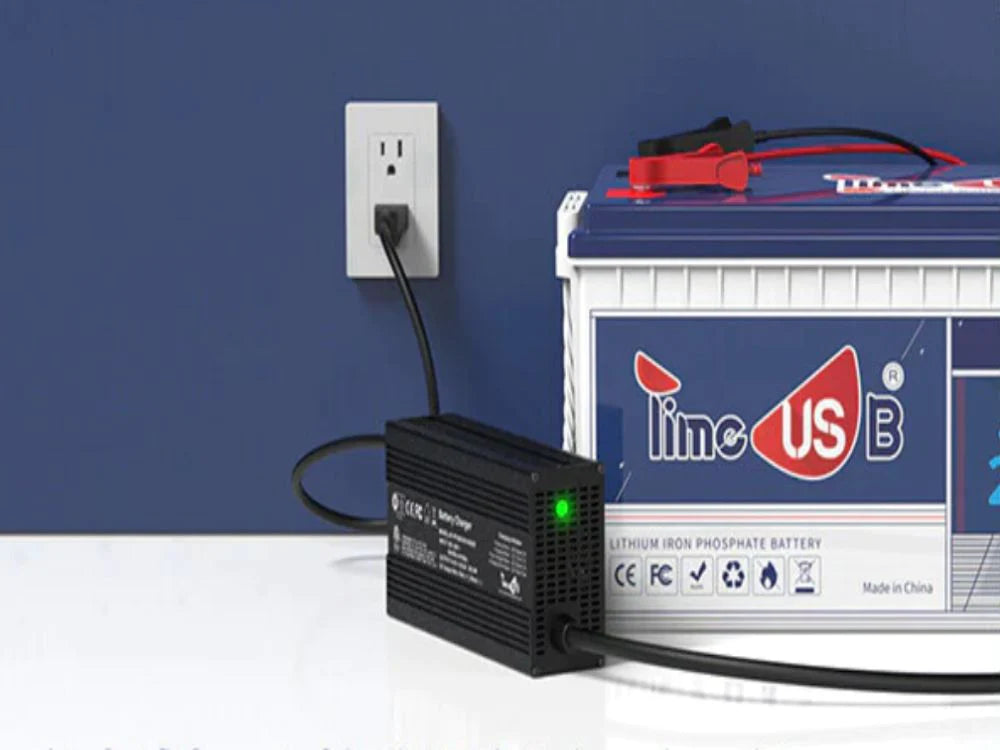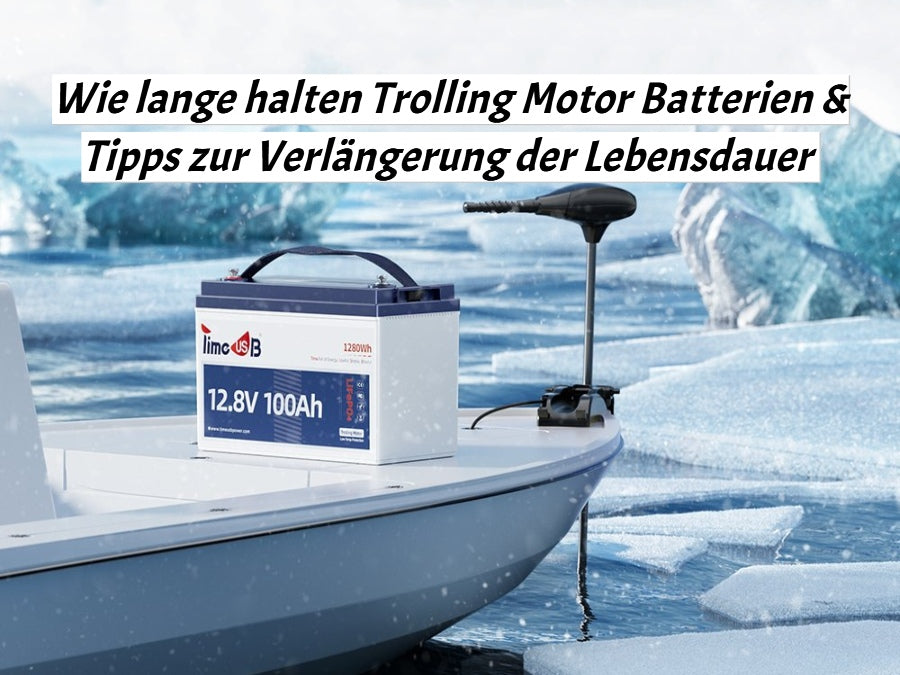6 Mistakes to Avoid When Charging Lithium Batteries for Boats and RVs

When it comes to charging lithium batteries for boats and RVs, avoiding mistakes is crucial to ensure their longevity and performance. These batteries are highly efficient and provide reliable power for your boating and RV needs. However, there are certain mistakes that should be avoided to optimize their performance. In this article, we will discuss the most common mistakes to avoid when charging lithium batteries for boats and RVs. Check out the Timeusb LiFePO4 battery to get your cheapest LiFePO4 to get lithium batteries!
Error 1. Deep discharge of lithium batteries
One of the most critical mistakes to avoid is over-discharging batteries. Lithium batteries should never be discharged below their recommended voltage limit. This can cause irreversible damage and significantly reduce their lifespan. To address this problem, most lithium-ion batteries have built-in protection features that maintain certain voltages. For example, they are designed to stop discharging once they reach a voltage of around 2.5 volts. At this point, the battery will no longer power the device it is connected to. It may seem as if the battery is completely discharged, but there is still a small amount of capacity remaining.
Fortunately, modern lithium-ion battery systems have a battery management system (BMS)to prevent overcharging and over-discharging. These systems monitor the voltage of the battery and automatically shut off the load if it reaches a dangerously low level. In addition, they have circuits that prevent overheating during operation or charging.

Error 2. Overcharging of LiFePO4 batteries
Overcharging is another mistake that can harm the health of the battery. Lithium batteries are sensitive to overcharging, which can lead to overheating and even battery failure. To avoid overcharging, it is important to use a charger specifically designed for lithium batteriesbecause they have integrated protection mechanisms against overload.

Error 3. Using the wrong charger
Using the wrong charger is a common mistake that can have serious consequences. Each lithium battery has specific charging requirements, including voltage and current. Using a charger that does not meet these requirements can result in improper charging and possible damage to the battery. Always check the manufacturer's recommendations and use a charger that is compatible with your boat or RV lithium battery. If you are unsure, see the format below.

Mistake 4. Neglecting temperature limits
The performance and lifespan of lithium batteries are significantly affected by temperature. Charging under extreme conditions can cause damage and reduced capacity. It is important to adhere to the temperature range recommended by the manufacturer when charging. For optimal performance and longevity, it is necessary to avoid very hot or cold temperatures.
While LiFePO4 batteries are less affected by temperature than lead-acid batteries, extreme heat or cold can still have negative effects on them.High temperatures can cause a dangerous thermal runaway reaction in lithium-ion batteries. This happens when the battery's internal heat exceeds its ability to dissipate heat, resulting in fire or explosion. Therefore, it is important to charge lithium-ion batteries in a suitable environment to ensure safety and extend their lifespan.
In addition, exposure of lithium-ion batteries, including LiFePO4 batteries, to extremely low temperatures should be avoided. Cold temperatures can affect battery performance and potentially cause permanent damage if handled improperly. Charging at low temperatures reduces efficiency and may slow down charging speed and overall capacity. In severe cases, such as sub-zero temperatures, the battery's electrolyte may freeze, causing irreversible damage to the battery's internal structure.
To avoid these problems, it is recommended to charge lithium-ion batteries within the temperature range specified by the manufacturer. Typically, this range is between 0 °C and 45 °C (32 °F to 113 °F) for most LiFePO4 batteries. Charging outside this range may result in reduced performance and potentially shorten the battery life. In regions with cold winters, it is advisable to use batteries with cold protection. Here we recommend the Timeusb 12V 140Ah LiFePO4 battery.
Error 5. Incorrect storage before charging
Improper storage of lithium batteries can also cause irreversible damage. Storage in high temperature environments can increase the possibility of self-discharge and reduce the overall capacity of the battery. It is recommended that lithium batteries be stored in a cool, dry place, away from direct sunlight and extreme temperatures.
Learn more about how to properly store your LiFePO4 battery.

Mistake 6. Neglecting safety precautions
Safety should be your top priority when charging lithium batteries for boats and RVs. Never leave batteries unattended while charging, especially overnight. Always follow the manufacturer's instructions and use safety features such as battery management systems or chargers with built-in safety measures. This will help prevent accidents and ensure a long and safe life for your batteries.
Conclusion
In summary, when charging lithium batteries for boats and RVs, it is important to avoid common mistakes to ensure their longevity and optimal performance. These include not over-discharging or overcharging the batteries, using the wrong charger, ignoring temperature limits, using incorrect storage methods, and neglecting safety precautions. By following these guidelines and paying attention to manufacturer recommendations, you can maximize the lifespan and reliability of your lithium batteries for boats and RVs, ensuring a smooth and uninterrupted power supply for your outdoor adventures.




